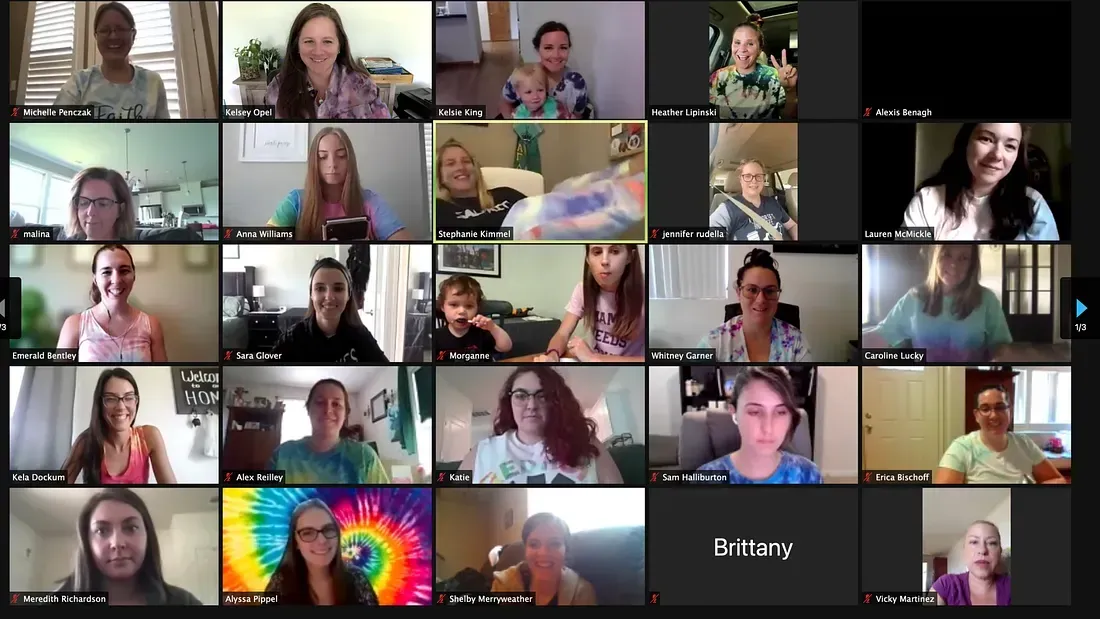The Importance of Trust in Virtual Relationships: Building and Maintaining Trust Remotely
Since COVID, the workforce has embraced remote work at an unprecedented rate, bringing up the importance of trust in virtual relationships. As teams and individuals collaborate across cities, countries, and even continents, the ability to build and maintain trust within a remote team or team member has become a critical component for success. Building trust remotely can be challenging when there isn’t opportunity for things like break room chats or popping by someones desk to ask about their weekend plans or upcoming trips become a lot harder to happen organically. Interactions like these are important in building relationships between team members and help in building trust. Trust serves as the foundation of any successful relationship, and this holds true even in virtual settings. In the absence of physical presence, establishing and nurturing trust can seem daunting, yet in these situations, it is more important than ever to get it right.

Understanding Trust in Virtual Relationships
Trust, at its core, is the belief in the reliability, truth, and ability of someone or something. In virtual relationships, it means having confidence that team members will fulfill their responsibilities, communicate honestly, and support each other despite physical distances. In virtual settings, feeling assured that colleagues are committed to the team’s goals and will act with integrity and transparency is the foundation of a trusting relationship. When trust is present, it fosters open communication, encourages collaboration, and boosts overall team morale. Team members are more likely to share ideas, provide constructive feedback, and work towards common goals when they feel trusted and trust others. Conversely, a lack of trust can lead to miscommunication, decreased productivity, and a fragmented team dynamic. In remote work environments, where face-to-face interactions are limited, building and maintaining trust is crucial to ensuring that teams remain cohesive, motivated, and productive.
Challenges of Building Trust Remotely
Building trust remotely comes with a unique set of challenges. The lack of face-to-face interactions, like being able to pop over to someone’s desk to chat through something, can lead to miscommunications and misunderstandings. Non-verbal cues are often missed in virtual conversations and can lead to confusion when things aren’t clearly articulated. Dependence on digital communication tools can also create barriers, especially when technical issues arise and disrupt the flow of information and collaboration. While working across different time zones and cultural backgrounds can complicate coordination and inclusivity, making it harder to establish a unified team dynamic. These challenges highlight the importance of being intentional and proactive in fostering trust in virtual relationships, requiring clear communication, reliability, and a solid commitment to inclusivity and understanding.

Strategies for Building Trust in Virtual Relationships
One of the biggest foundations to trust in a virtual relationship is open and consistent communication. Regular check-in, updates, and timely replies help keep everyone on the same page and reduces the chances of misunderstandings. Having your communication channels established and ensuring everyone is comfortable using them will make the transfer of important information easy for the whole team. It’s also vital to set clear expectations from the start, defining roles, responsibilities, and deadlines. Establishing norms for virtual interactions, such as response times and availability, can further help in aligning team members and preventing miscommunications.
Demonstrating reliability and competence is another crucial aspect of building trust remotely. Delivering on promises, meeting deadlines, and producing quality work consistently show team members that they can depend on each other. Encouraging social interactions, even in a virtual setting, can strengthen relationships and build trust. Virtual team-building activities and informal virtual gatherings can create opportunities for team members to connect on a personal level, fostering a sense of camaraderie and mutual respect that often comes with the break room chats when in person. These strategies can help teams overcome the inherent challenges of remote work by building strong, trust-based relationships with their team from the start.
Maintaining Trust Over Time
A big part of maintaining trust over time is making sure team members feel heard and valued by everyone. This can be achieved through periodic performance reviews and constructive feedback sessions, which provide opportunities to address any issues and make necessary adjustments. It’s important to be open to feedback and willing to adapt communication strategies based on team members’ needs and preferences. Maintaining an ongoing dialogue helps keep everyone aligned and reinforces the trust that has been established.
Company culture is often what keeps people around, so fostering a positive virtual culture will be crucial for long-term success. Celebrating achievements and milestones, whether big or small, helps to build a sense of community and recognition. Promoting a culture of appreciation and acknowledgment makes team members feel valued and motivated. While addressing issues immediately and maintaining a problem-solving attitude are vital for sustaining trust. Being proactive in resolving conflicts and demonstrating a commitment to finding solutions helps to maintain a healthy and productive team dynamic. By focusing on these aspects, remote teams can ensure that the trust they have built remains strong and enduring.
Conclusion
Trust is the cornerstone of successful virtual relationships. In a world where remote work is becoming increasingly common, building and maintaining trust among team members is essential for effective communication, collaboration, and productivity. Despite the challenges of limited face-to-face interactions, technological barriers, and diverse working environments, trust can be cultivated through consistent and transparent communication, clear expectations, demonstrated reliability, and encouraging social interactions.
Maintaining trust over time requires ongoing communication, regular feedback, and a positive virtual culture that celebrates achievements and addresses issues promptly. By prioritizing these strategies, remote teams can foster strong, trust-based relationships that enhance cohesion, motivation, and overall success. As we continue to navigate the evolving landscape of remote work, investing in trust will be the key to thriving in virtual environments.










